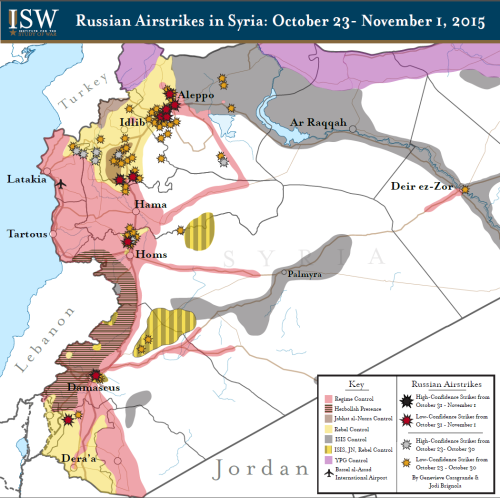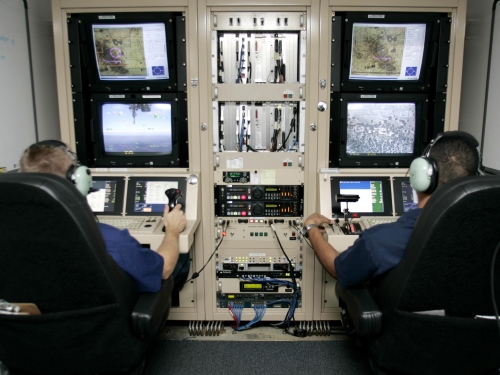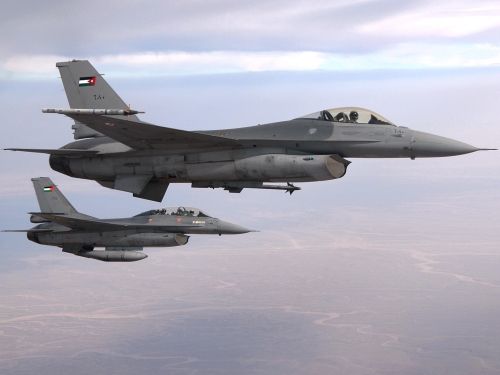
This map was originally published by the Institute for the Study of War on 2 November, 2015.
The Russian Ministry of Defense (MoD) discontinued the release of daily airstrike reports from October 28 – November 1 amidst multilateral talks on the Syrian Civil War held in Vienna on October 30 and continued reports of civilian casualties. Nevertheless, credible local sources continued to report airstrikes in Dera’a, Damascus, Homs, Hama, Idlib, and Aleppo from October 31 – November 1. Russian airstrikes predominantly targeted rebel-held areas in Aleppo Province in conjunction with regime ground offensives against ISIS in the southeastern countryside of Aleppo and rebel forces southwest of Aleppo City. Local activist reporting claimed that Russian airstrikes and regime forces killed 64, including 28 children in Aleppo on October 31 alone.




